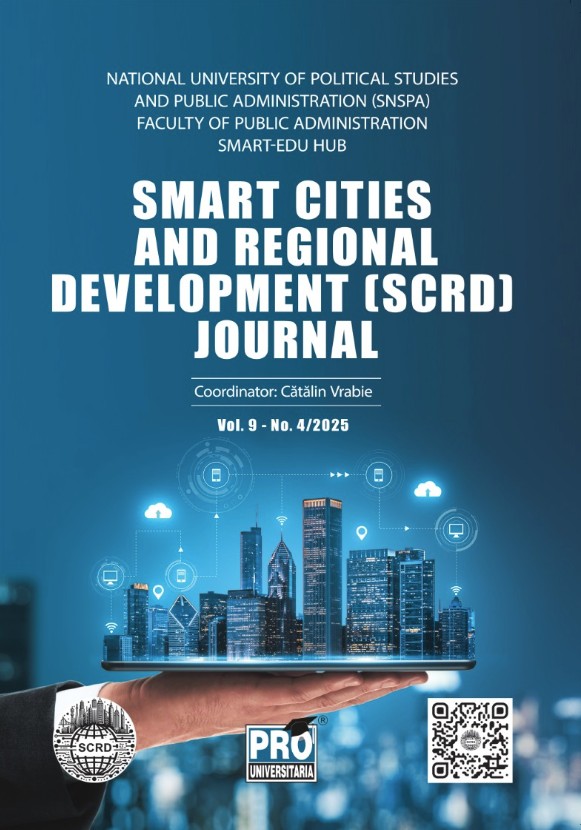Driven urban development in Mashhad: A strategic framework for smart transportation systems
DOI:
https://doi.org/10.25019/e93th449Keywords:
intelligent transportation systems, urban development, Mashhad, smart mobilityAbstract
Rapid urbanization in Mashhad, Iran’s second-largest city and a major religious and cultural hub, has significantly intensified transportation challenges. These include rising traffic congestion, deteriorating air quality, increased greenhouse gas emissions, and persistent issues with last-mile connectivity that hinder overall mobility and urban livability. To address these growing concerns, this study proposes a data-driven urban development framework that leverages the capabilities of Intelligent Transportation Systems (ITS) to enhance travel efficiency, environmental sustainability, and public well-being. The proposed framework is centered around the integration of advanced geo-databases, real-time data exchange protocols, and open platforms for urban mobility analytics. These components enable dynamic decision-making and support predictive traffic management, multimodal transportation planning, and adaptive infrastructure design. A mixed-methods approach was adopted, combining MICMAC (Matrix of Cross-Impact Multiplications Applied to Classification) structural analysis with stakeholder surveys to identify and prioritize the key drivers, barriers, and interdependencies affecting ITS implementation in Mashhad. To evaluate the feasibility and effectiveness of the proposed framework, virtual traffic modeling and simulated datasets were utilized. Results indicate a potential 15% reduction in peak-hour traffic congestion, along with improvements in network reliability and service coverage. These outcomes suggest that ITS adoption, when guided by informed data governance and inter-organizational coordination, can play a transformative role in Mashhad’s urban mobility ecosystem. The findings emphasize the critical need for collaborative governance models, investments in smart mobility infrastructure, and public engagement strategies to ensure successful ITS deployment. Ultimately, this research highlights the strategic value of integrated, technology-driven approaches in fostering sustainable urban growth, improving transportation resilience, and enhancing the quality of life in rapidly expanding metropolitan regions like Mashhad
Downloads
Published
Issue
Section
License
Copyright (c) 2025 Mahdi GHANDEHARI

This work is licensed under a Creative Commons Attribution-NonCommercial-NoDerivatives 4.0 International License.


